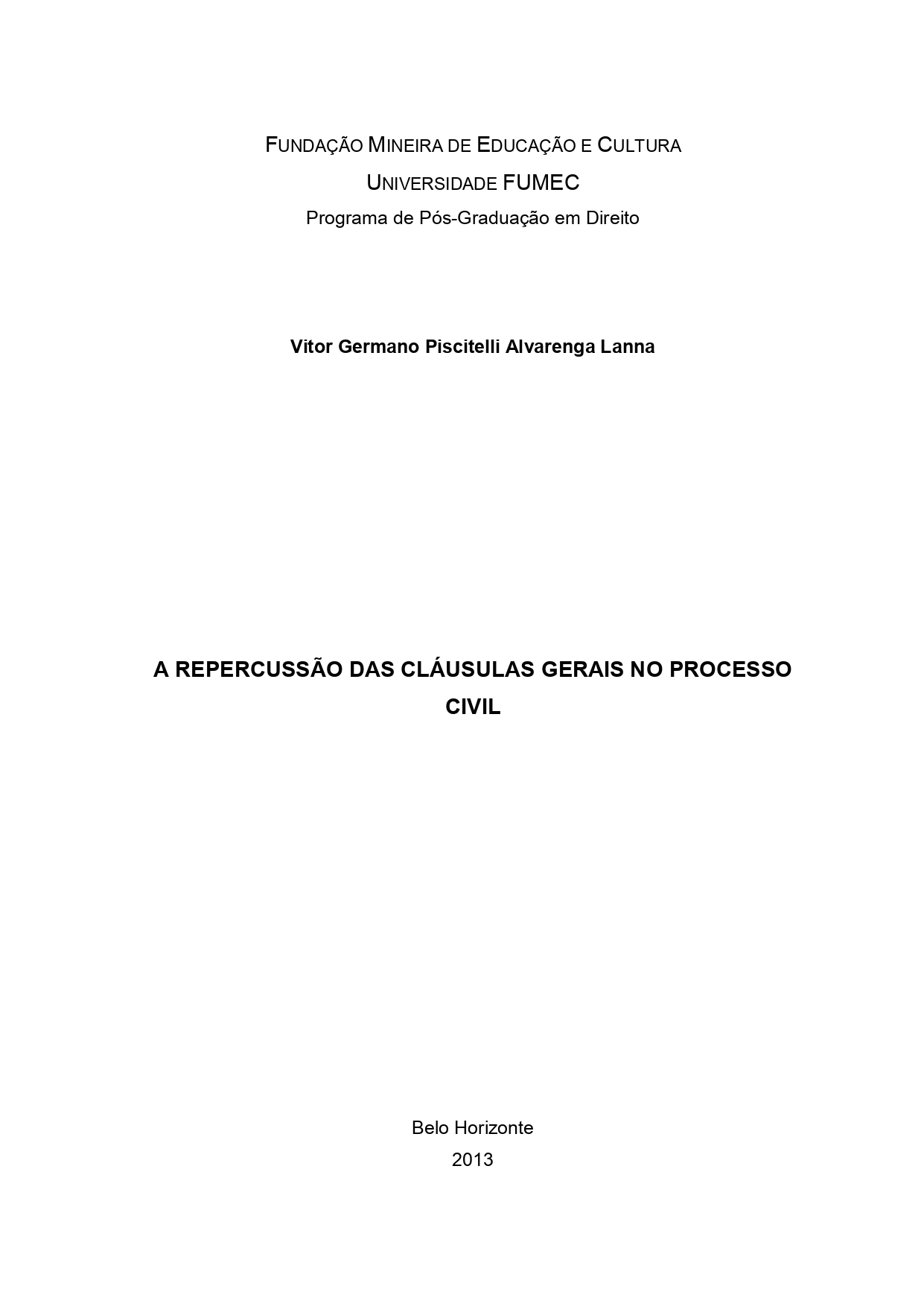A repercussão das cláusulas gerais no processo civil

Visualizar/
Data
2013Autor
Lanna, Vitor Germano Piscitelli Alvarenga
xmlui.mirage2.itemSummaryView.MetaData
Mostrar registro completoResumo
A técnica normativo-legislativa das cláusulas gerais surge com a suposta preocupação de conferir maior efetividade ao direito material, abrindo o ordenamento jurídico a valores extrassistêmicos, conferindo ao julgador o poder de adequar o procedimento à realidade dos fatos. Com efeito, as cláusulas gerais reforçam o entendimento do processo como relação jurídica, aproximando-o dos ideais instrumentalistas, na medida em que estabelece sujeição das partes com relação ao julgador, bem como impede a participação destas na construção do provimento. A partir do marco teórico da teoria neoinstitucionalista do processo, o presente trabalho sugere que a legitimidade decisória no paradigma democrático fica prejudicada pelas cláusulas gerais, pois inviabiliza a ocorrência do discurso participativo, exigido pela observância do devido processo legal, do contraditório, da ampla defesa e da isonomia. The 'open-closure' technique, used so the material rights can be given better effectiveness, let the otherwise hermetic system of law open to valor and ideas found outside the normative structure; leaving to the judge the discretionary power to alter the procedure to a more suitable one. Thus the „open-closure‟ technique guarantee the Due Process of Law – concerning process it self –, leading up to a more instrumentalist use of the process, investing the judge with powers over and not none to the plaintiff and the defendant. The last then have less of a role in the decision process. By the use of the neoinstitucionalista theory of the process (in the Rule of Law perspective) the analyses indicates that the legitimacy of the decision process is somehow impaired by the „open-closure‟ technique, since such technique does not allow exchange of ideas required to the Due Process of Law.
